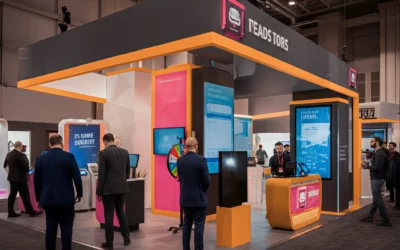Sales incentive programs are strategic tools designed to motivate and reward employees for achieving specific sales targets. These programs not only boost morale and performance but also contribute significantly to a company’s bottom line. In this article, we will explore what sales incentive programs are, their benefits, and why a sales incentive trip is the best option for companies looking to maximize the impact of their incentive strategies.
What are Sales Incentive Programs?
Sales incentive programs are structured plans designed to motivate sales teams to achieve or exceed their sales targets. These programs typically offer rewards such as bonuses, gifts, recognition, and most notably, incentive trips. The primary goals of these programs are to drive higher sales performance, improve employee engagement, and retain top talent.
Key Components of Sales Incentive Programs
1. Clear Objectives: Establishing specific, measurable goals that align with the company’s overall business objectives.
2. Target Audience: Identifying the sales teams or individuals who will participate in the program.
3. Incentives: Defining the rewards that will be offered, which can range from cash bonuses to luxury travel experiences.
4. Tracking and Measurement: Implementing a system to monitor progress and measure the success of the program.
5. Communication: Ensuring that all participants are aware of the program details, including objectives, timelines, and rewards.
Benefits of Sales Incentive Programs
1. Increased Sales Performance
Sales incentive programs are designed to push sales teams to go the extra mile. By setting ambitious targets and offering attractive rewards, companies can drive higher sales performance and revenue growth.
2. Enhanced Employee Motivation
Recognizing and rewarding employees for their hard work boosts morale and motivation. When employees feel appreciated and valued, they are more likely to stay engaged and committed to their roles.
3. Improved Employee Retention
Incentive programs can reduce turnover rates by creating a more rewarding work environment. Employees who see opportunities for recognition and rewards are less likely to seek opportunities elsewhere.
4. Better Team Collaboration
Sales incentive programs can foster a sense of camaraderie and healthy competition among team members. Collaborative goals and team-based rewards encourage employees to work together towards common objectives.
Why Sales Incentive Trips are the Best Option
While there are various types of rewards that can be offered in a sales incentive program, incentive trips stand out as the most effective and memorable option. Here’s why:
1. Unforgettable Experiences
Travel experiences create lasting memories that employees will cherish. Unlike monetary rewards, which can be quickly forgotten or spent, an incentive trip provides a unique opportunity for employees to explore new destinations, cultures, and activities.
2. Enhanced Team Bonding
Traveling together as a team fosters stronger relationships and enhances team cohesion. Shared experiences during the trip create a sense of unity and camaraderie that can translate into better teamwork back at the office.
3. Increased Motivation
The prospect of an exciting trip can significantly boost motivation and drive employees to achieve their sales targets. The anticipation of the reward adds an extra layer of excitement and encourages employees to strive for excellence.
4. Improved Employee Satisfaction
Incentive trips are seen as a premium reward that goes above and beyond standard compensation. Providing such an exceptional reward demonstrates the company’s commitment to employee satisfaction and well-being.
5. Public Recognition
Incentive trips often include recognition ceremonies where top performers are publicly acknowledged and celebrated. This recognition not only boosts the morale of the recipients but also inspires other employees to aim for similar achievements.
Planning a Successful Sales Incentive Trip
To maximize the impact of a sales incentive trip, careful planning and execution are essential. Here are some key considerations:
1. Choose the Right Destination
Select a destination that appeals to your team and aligns with your budget. Consider factors such as travel accessibility, climate, cultural attractions, and available activities. Popular destinations for incentive trips include tropical beaches, historic cities, and luxury resorts.
2. Plan Engaging Activities
Offer a mix of leisure and team-building activities to cater to different interests. Activities could include adventure sports, cultural tours, gourmet dining experiences, and relaxation at spas. The goal is to provide a well-rounded experience that everyone can enjoy.
3. Set Clear Expectations
Communicate the objectives and criteria for earning the trip clearly to all participants. Make sure everyone understands what is required to qualify for the reward and how their performance will be tracked.
4. Provide Personalized Touches
Personalize the trip experience to make participants feel special. This could include personalized welcome gifts, custom itineraries, and exclusive access to events or experiences.
5. Monitor and Evaluate
After the trip, gather feedback from participants to assess the success of the program. Use this feedback to make improvements for future incentive trips and to measure the overall impact on sales performance and employee satisfaction.
Conclusion
Sales incentive programs are powerful tools for driving sales performance, enhancing employee motivation, and improving retention. Among the various rewards, sales incentive trips stand out as the most impactful option. They offer unforgettable experiences, foster team bonding, and significantly boost motivation and satisfaction.
At J.Shay Event Solutions, we specialize in planning and executing exceptional incentive trips that inspire and reward your top performers. If you’re ready to take your sales incentive program to the next level, visit our contact page to start planning your next unforgettable incentive trip.
You might also like...
Top 10 U.S. Meeting Destinations for 2026
Successful corporate events don’t just happen — they’re built on smart decisions, starting with...
The Trade Show Prep Guide: Boost ROI Like a Pro
Trade shows are a powerful way to elevate your brand's visibility, connect with potential...
President’s Club 2026 Ultimate Gift Guide
Luxury, Personalization, and Impact for Unforgettable Incentive Travel President’s Club isn’t just...



